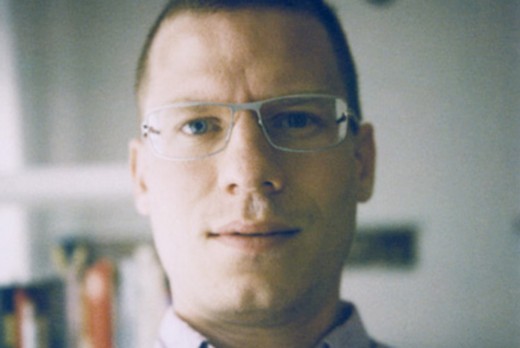All About the Design Genius Who Gestated Facebook’s Overhaul
Today Facebook announced two innovations – a visual Timeline view for parsing your entire history on Facebook, and Lifestyle apps for recording every minute detail about your daily activities – whose genesis I reported on back in May. I certainly had no idea the result of Facebook’s hire of Nicholas Felton would be a substantial overhaul of Facebook’s functionality. As I reported at the time:

Ever wondered just how much coffee you drank last year, or which movies you saw, and when? New Web and mobile apps make it possible to track, and visualize, this personal information graphically, and the trend could be set to expand dramatically.
This is because Facebook recently acquired one of the leading personal-data-tracking mobile apps and hired its creators. The social-networking giant could be gearing up to offer users ways to chart the minutiae of their lives with personalized infographics.
Turns out, that is as good an explanation of the functionality of Facebook’s new Lifestyle apps as any. As the company is publicly announcing, this entire effort was inspired by the work of Nicholas Felton, a designer whose Feltron Reports on his own life inspired a subset of life-tracking geeks long before Facebook heard of him. From the same piece:
Felton says he can’t talk about what he’ll be doing at Facebook, but says, “Clearly, companies like Facebook recognize the value of the kind of work we were doing.”
And how. As The Next Web reports:
“As soon as we got wind of him at Facebook, we had one reaction-We have to try and hire this guy, We have to get him from Brooklyn, NY to Palo Alto, California,” says [Chris Cox, the VP of Product Management at Facebook]. It was only a matter of time before Felton and his partner in crime Ryan Case packed their bags.
Facebook is already the world’s largest repository of behavioral data. Lifestyle apps add to the number of channels through which Facebook can ingest that data. Again, from my reporting in May:
Facebook, users already engage in countless acts of data entry, so it’s possible that the data Felton will be visualizing will already be available. Automated data gathering through smart phones—especially location data—provides even more data to mine.
But here’s the analysis that’s missing from most of today’s coverage. How Facebook can use this data to conduct a kind of targeted advertising of which analytics-obsessed marketers have only dreamed:
Eventually—with users’ permission—this kind of personal information could be mined by marketers and advertisers. Ted Morgan, CEO of the geolocation software company Skyhook, compares the trend to the way advertisers currently track some TV viewers’ watching habits. In the future, he says, tracking data will be “like a Nielsen rating box for your life. It will track where you go and what you do. [Advertisers are] going to pay people to do this.”
One company is already exploring this possibility. Locately offers users promotions and discounts if they agree to opt in to its mobile data-gathering network. This lets the company gather data on where people go, what they do, and what they buy; the company sells that data to businesses who want to use it for market research and advertising.
It’s also very likely that users of Facebook’s Lifestyle apps are about to learn some uncomfortable truths about themselves.
Gathering detailed personal data can produce surprising insights, says Felton. “The way people describe themselves is not really in line with their true behavior,” he notes. For example, users who track what TV shows they actually watch may find that they spend more time on shows they don’t identify as their favorites.
But our true, versus our revealed selves, might also allow us to discover people who are even more like us than we realize.
Perhaps this could lead to a whole new kind of friend discovery, one based not on our expressed interests, but on our actual interests. Picture a beefed-up version of Facebook’s “people you might also know” feature informed not just by who you’re connected to, but what behavior you have in common.
“It could be shared affinities that are not recognized by either [party],” says Felton. The downside, of course, is that people who are a lot like us often drive us crazy. “You might hate them,” says Felton. “Isn’t that part of what annoys us about our families?”
Keep Reading
Most Popular
Large language models can do jaw-dropping things. But nobody knows exactly why.
And that's a problem. Figuring it out is one of the biggest scientific puzzles of our time and a crucial step towards controlling more powerful future models.
The problem with plug-in hybrids? Their drivers.
Plug-in hybrids are often sold as a transition to EVs, but new data from Europe shows we’re still underestimating the emissions they produce.
Google DeepMind’s new generative model makes Super Mario–like games from scratch
Genie learns how to control games by watching hours and hours of video. It could help train next-gen robots too.
How scientists traced a mysterious covid case back to six toilets
When wastewater surveillance turns into a hunt for a single infected individual, the ethics get tricky.
Stay connected
Get the latest updates from
MIT Technology Review
Discover special offers, top stories, upcoming events, and more.